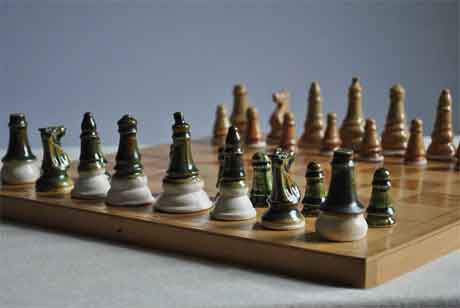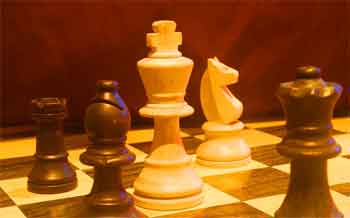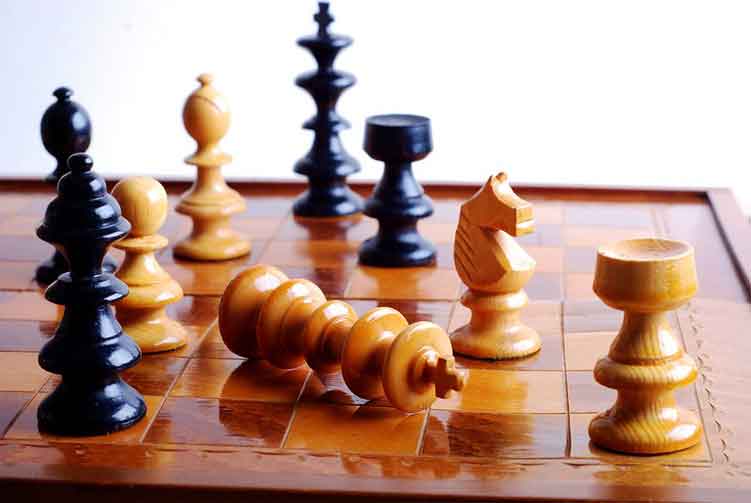Playing chess on the computer has much in common with ‘over the board’ play with a ‘live’ opponent. In the latter situation, the parameters of play are set down and these are followed by mutual agreement.
Internet chess has more in common with correspondence chess. Here players are usually given an extensive amount of time to consider a position and make a move. Internet sites often allow players to agree to 3, 7 or 10 days in which to make a move. In addition players are often at liberty to consult opening books as well as texts on game theory and strategy.
Amateur vs Scientific Chess

Before stating a game with an unknown opponent, it is probably a good idea to study his or her previous games to gain an understanding of their level of play and the extent to which they are playing amateur or scientific chess. The former type of player is often referred to as a “wood pusher.” This is due to their lack of understanding of the “big picture” of the game. In his book titled “New Ideas in Chess,” GM Larry Evans points out that there are four factors at play in a chess game. These are:
- Force- the relative value of pieces
- Pawn Structure – the strength and weakness of pawn formations
- Space – the amount of space your pieces control
- Time – correct utilization of moves so as not to waste effort.
The average beginner may understand only the first element. The scientific approach to chess requires the skillful application of all four aspects of play. It is reasonable to say that the scientific approach will produce victory over players who are amateur. This means that if one is an amateur player who is looking to increase ones ranking, it is probably best not to play high ranked players. On the other hand playing against good players can teach one much about the game. In this context, there is an adage that one learns more from a loss than from a victory. To know more about the Chess, read here: www.glaurungchess.com.
Time Management
In all cases, internet players should take due time to consider positions and to look at possible moves and their consequences. Impulsive play is the a prescription for defeat. Spend time to consider what ones opponent is trying to to. This is especially true of unexpected moves. Beware of traps!
Do not let your time run out! If you do so, you are then at the mercy of your opponent who may choose to claim victory; even from a lost position. Internet programs often allow one to ‘go on vacation.’ This means that players have extra time, in addition to that agreed upon. If you are taking a break, make certain that you have correctly paused your games otherwise you may return to find most of you matches have become losses.
Improve Your Rating
As with tournament chess, one’s rating improves with wins and draws (against higher ranked players).
Thre are two strategies to use in this regard;
- Defeat or draw against higher ranked players
- Defeat lower ranked players
A close study of the players roster will demonstrate this. Some high ranked plyers got there through tough battles with other strong players. Others have simply defeated many lower ranked players and may never have had a difficult position to deal with!

Improve Your Game
To become a better player one has to play against strong competition. Learn from games and study the games of others. In this manner you will start to grasp the “new ideas” mentioned above. Learn a few good openings and experiment with them. Do not defeat youself by getting psyched out! Avoid cheap traps in favour of sound play. Always assume that your opponent is a Grand Master and seek out the best move possible in a position. GM Nigel Short has referred to this as a “candidate’s move.’ This type of play requires a relaxed disposition and a positive attitude.
Online chess provides an excellent forum for the imporvement of ones chess skills. One can almost always find an opponent and you can take your time when making moves. Chat with you opponent and you may also make a friend. Players come from all corners of the world and yon never know when an internet game may turn into an over the board game in a distant land.

